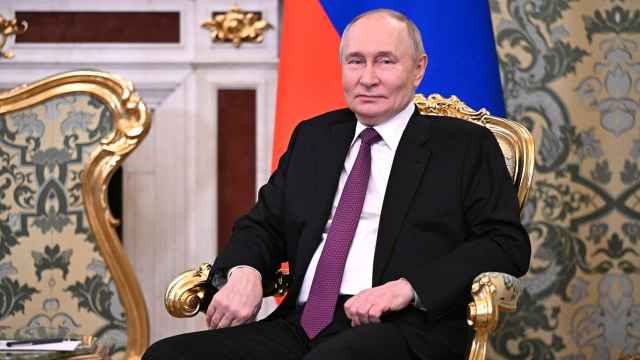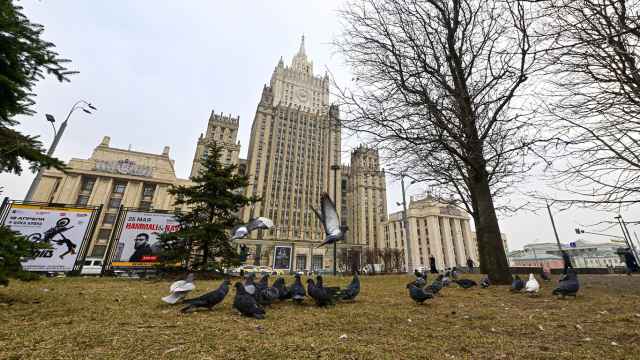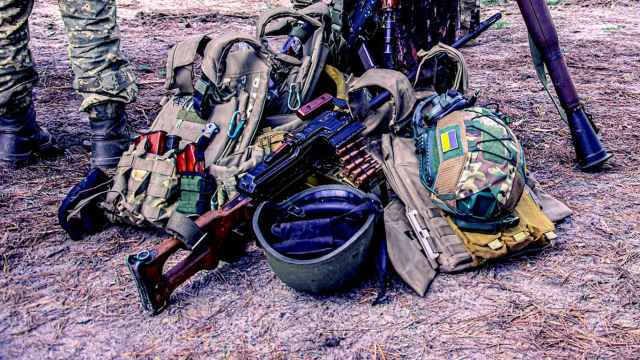GENEVA &mdash International sanctions on Iran could be eased if Tehran makes "real positive steps" to meet concerns about its nuclear program, Foreign Minister Sergei Lavrov said Tuesday.
The United Nations has imposed four rounds of sanctions on Tehran for refusing to freeze its uranium enrichment program, which Western powers suspect is aimed at producing a nuclear weapon. Iran says its program is for peaceful energy needs.
The next round of negotiations between world powers and Iran must be held soon and seek agreement on concrete steps, Lavrov said. Iranian Foreign Minister Ali Akbar Salehi has assured him of Tehran's readiness to discuss all issues.
Lavrov also said a problem at the Russian-built nuclear reactor in Iran at Bushehr was "exclusively" technical, but safety was paramount and he expected it to be resolved within three months. "We cannot operate in a way that creates, even if it is hardly likely, any risk," he said at a news conference.
World powers must have a step-by-step approach with Iran, and Iran must respond positively to resolutions of the Security Council and International Atomic Energy Agency, Lavrov said.
"In response to its real positive steps we will need to take measures to encourage them, including the weakening of the sanctions regime as Iran responds," he said.
Lavrov was speaking a day after holding talks in Geneva with counterparts including Salehi, U.S. Secretary of State Hillary Clinton and European Union foreign policy chief Catherine Ashton.
"During my meetings with Mrs. Ashton and the Iranian foreign minister, of course we discussed the need to continue the negotiations as soon as possible," he said.
The last round of talks held in Istanbul in January had shown that more detailed approaches were needed toward achieving the shared aim — which he said was "100 percent" insurance against the spread of nuclear weapons.
"Our Iranian partners assure us that they are ready to discuss all these problems. Now the question is preparing the ground for the next round, which of course cannot just be a round of exchanging positions. It is time to move on to start working out concrete elements for an agreement," Lavrov said.
Salehi said Monday that he hoped for more talks with the "P5+1" — the five permanent UN Security Council members and Germany — on Iran's nuclear program. Salehi also said safety and reliability were more important than a quick startup date for the $1 billion Bushehr plant.
Experts say a broken pump appears to have forced Iran to remove fuel from the reactor, a potentially significant problem that could cause further delays for the plant that has yet to start injecting power into Iran's national grid.
Iran has expressed anger with Russia over delays in the construction of Bushehr under a deal reached in the mid-1990s.
Diplomats say Russia, which has close ties with Tehran but is one of the six global powers seeking assurances that its nuclear program is purely peaceful, has used the Bushehr project as a lever in diplomacy with Iran.
Salehi, in a speech to the UN Conference on Disarmament on Tuesday, said the 23,000 nuclear weapons in the stockpiles of world powers posed the gravest threat to international security.
"As long as these weapons exist and are being modernized, there would always be a risk of their proliferation," said Salehi, who did not refer to Iran's nuclear program.
A Message from The Moscow Times:
Dear readers,
We are facing unprecedented challenges. Russia's Prosecutor General's Office has designated The Moscow Times as an "undesirable" organization, criminalizing our work and putting our staff at risk of prosecution. This follows our earlier unjust labeling as a "foreign agent."
These actions are direct attempts to silence independent journalism in Russia. The authorities claim our work "discredits the decisions of the Russian leadership." We see things differently: we strive to provide accurate, unbiased reporting on Russia.
We, the journalists of The Moscow Times, refuse to be silenced. But to continue our work, we need your help.
Your support, no matter how small, makes a world of difference. If you can, please support us monthly starting from just $2. It's quick to set up, and every contribution makes a significant impact.
By supporting The Moscow Times, you're defending open, independent journalism in the face of repression. Thank you for standing with us.
Remind me later.





